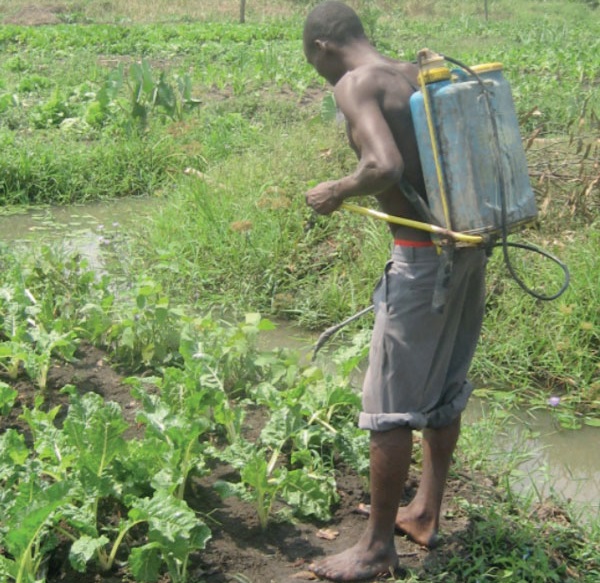
Kampala, Uganda | THE INDEPENDENT | The uncontrolled usage of agrochemicals to boost productivity and control pests in Sembabule district is taking a huge toll on water sources and plants.
Simon Byarugaba, the Sembabule District Agricultural Officer, says they are currently struggling to control the increasing use inorganic fertilizers, pesticide and herbicides, which are contaminating water sources hence posing a health risk to communities.
According to Byarugaba, the campaign to battle the prevalent excessive usage of agricultural chemicals follows a scientific study that showed high levels of contamination of water in the area.
In November last year, the Uganda National Association of Community Occupation Health-UNACOH established that majority of farmers in Sembabule were using various agrochemicals inappropriately leading to high levels of water contamination.
Byarugaba says the findings presented to them are serious challenge, which ought to be addressed.
Dr. Emmanuel Kalungi Kawooya, the Sembabule District Production Officer as well as the Marketing Coordinator, says studies found that several water sources in the area contained toxic residual elements from agrochemicals varying between 40 to 50 percent.
Dr. Kawooya indicates that they have now embarked on a massive campaign towards combating the misuse of chemicals as a way of eliminating the associated health problems.
He explains that they have now established a district multi-sectoral task force that is charged with sensitizing farmers on proper application and handling of agrochemicals as well as avoiding all unfriendly environmental habits that increase risks of contamination.
Abudallah Kasimu Tegawa, the Community Development Officer at Sembabule District Association-SDFA, says they are exploring different avenues to enlighten the public about the hazard they are faced with and how they can overcome it.
He explains that on top of government extension workers, they have also involved religious leaders and local leaders to help popularize the advocacy campaign for responsible usage of agrochemicals.
******
URN
 The Independent Uganda: You get the Truth we Pay the Price
The Independent Uganda: You get the Truth we Pay the Price



